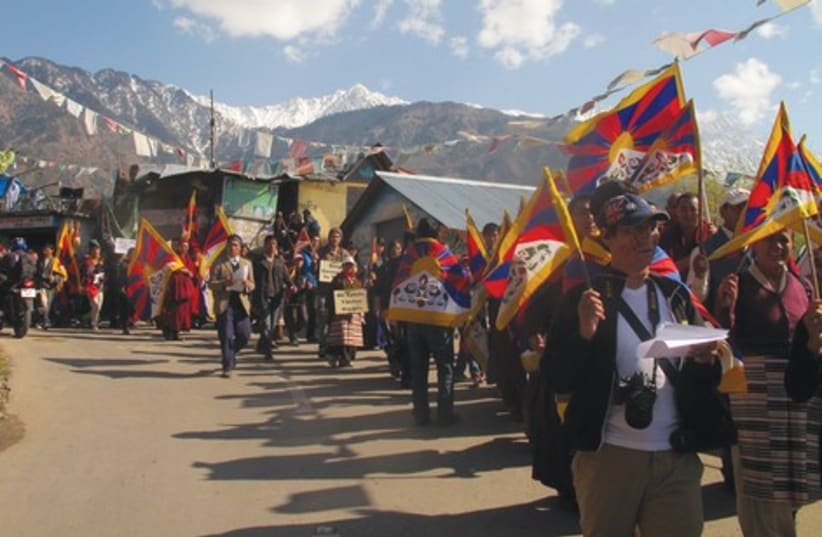What do you think is the real cause of these recent incidents? The main cause, I think, is the rejection by Tibetans of the Chinese occupation of Tibet, and the question of Tibetan ethnicity. ...Fifty years of Beijing’s policies have failed to produce any good for Tibetans. Our religion and cultural identity is almost vanishing from Tibet.
What do the Tibetan exiles fear? Is there something they wish for? What we are trying to do is we have urged Tibetans from the very beginning not to protest inside Tibet, given the harsh consequences of getting arrested. We have always said life is precious, and in January we urged Tibetans to refrain from taking extreme steps. His Holiness the Dalai Lama has always discouraged such actions and we continue to maintain that. Despite this, Tibetans inside Tibet are still protesting and giving up their lives and it becomes our sacred duty to show solidarity and highlight the voices and cries of those Tibetans who are self-immolating as they speak for Tibetan freedom and the return of His Holiness the Dalai Lama to Tibet.How do you think the world should react to this unrest? We welcome all the support from different countries, but what we’d like to see is concrete action. The embassy officials could visit these affected areas and show concerns locally as well, and then investigate the reality and the reason why Tibetans are protesting and why there is a crackdown – and inform their respective governments.And particularly for Asia; Tibet is very relevant from a geopolitical point of view, and in history it has played a great role in the central Asian region. Tibet has 10 rivers flowing from the region. It is a major source of water to the south Asian region. But since the Chinese occupation worse effects have been seen inside Tibet, ...directly affecting the climate in the Asian region. All the neighboring countries are affected by... China’s rise – so the Asian organizations such as SAARC should press the Chinese government as the world wishes for a more moderate and reasonable China. Because what is happening in China is detrimental to its image, and the claim of peaceful rising is nothing but a threat.There will be new leadership in China as Xi Jingping will succeed Hu as general secretary and president in 2012. Do you think it will be fruitful for the Tibet negotiations with the Tibetan exiles? The call by Hu Jintao for harmony within China is not happening in Tibet. But we remain always hopeful that any change in the leadership, with new personality and new thinking, will be productive.[For] the past 50 years, it has not been possible, so we hope the new leadership will rethink Tibet policy. From our side we are always willing to have dialogue to solve the Tibet issue peacefully and we stand for genuine autonomy within the People’s Republic of China.How do you think the conditions will change in the future? We want a peaceful situation, we do not want another tragedy unfolding inside Tibet. That is our hope, but given the military buildup, it’s a no tourist zone and even barred to international media, so even if a tragedy unfolds inside Tibet no one will know what happened. Such is the situation.– S.S.
